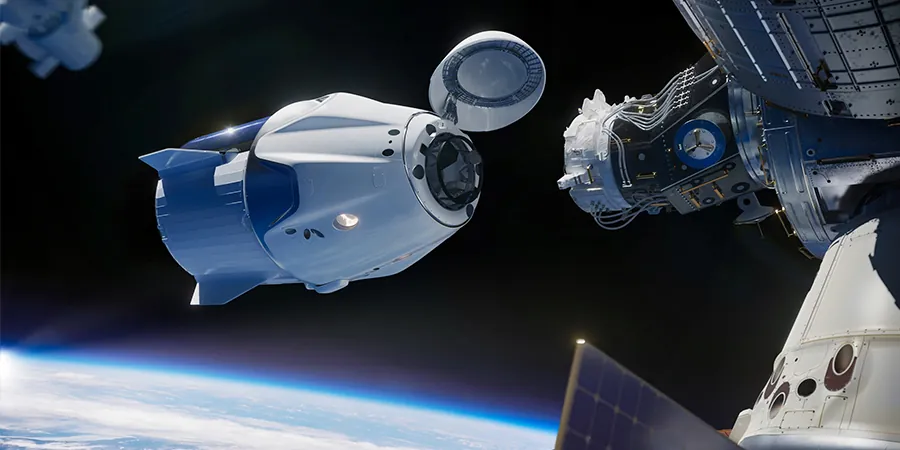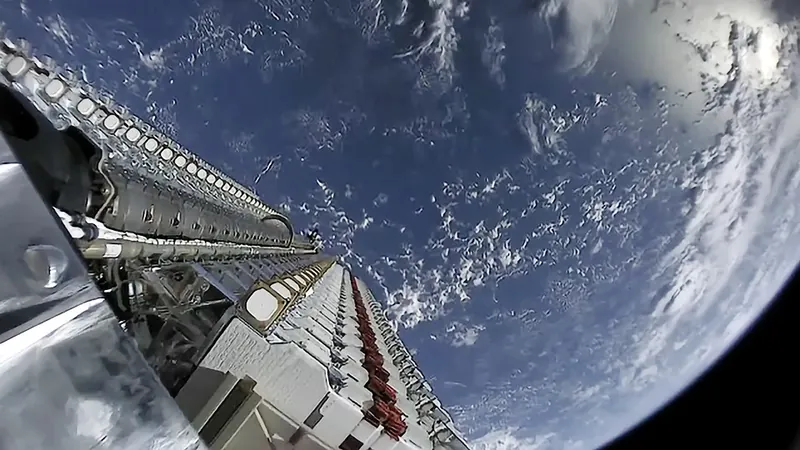
Say Goodbye to Being 'Lost in Space': Revolutionary GPS Technology is Heading to the Moon!
2025-06-02
Author: Rajesh
A Game-Changer for Lunar Exploration
In an exciting development for space exploration, Spanish technology group GMV has introduced LUPIN, a groundbreaking lunar positioning system that promises to deliver GPS-style navigation right on the Moon's surface.
Real-Time Navigation for Astronauts and Rovers
Supported by the European Space Agency (ESA), LUPIN aims to provide real-time navigation data, revolutionizing how astronauts and rovers operate on lunar terrain. This innovative system is set to usher in a new era of exploration beyond Earth.
Overcoming Lunar Challenges
While Earth boasts a sophisticated GPS satellite network, replicating this functionality on the Moon is no easy task. Currently, the lunar surface lacks the necessary satellite infrastructure for standard navigation methods. To mitigate this, NASA is actively working on a network of communication relay satellites under its Artemis program, which will enable a sustained human presence on the Moon.
LUPIN Works Hand-in-Hand with NASA
LUPIN is designed to seamlessly integrate with NASA's Lunar Communications Relay and Navigation Systems (LCRNS), providing the same kind of accurate positioning, timing, and navigation that apps like Google Maps or Waze offer us here on Earth.
Pioneering Lunar Navigation Experiments
But that's not the only exciting advancement in lunar navigation! In March 2025, NASA, alongside the Italian Space Agency, successfully demonstrated the Lunar GNSS Receiver Experiment (LuGRE), achieving the remarkable milestone of receiving and tracking Earth-based GNSS signals from the Moon. This groundbreaking achievement showcases the potential of using existing Earth-based navigation technologies to support lunar missions.
A Bright Future for Deep Space Navigation
These pioneering projects, including LUPIN and LuGRE, signal a transformative shift in how space agencies are approaching deep-space navigation. With such advancements, we may soon have the tools needed for precise navigation not just on the Moon but also on Mars and beyond. The future of space exploration is looking brighter than ever!


 Brasil (PT)
Brasil (PT)
 Canada (EN)
Canada (EN)
 Chile (ES)
Chile (ES)
 Česko (CS)
Česko (CS)
 대한민국 (KO)
대한민국 (KO)
 España (ES)
España (ES)
 France (FR)
France (FR)
 Hong Kong (EN)
Hong Kong (EN)
 Italia (IT)
Italia (IT)
 日本 (JA)
日本 (JA)
 Magyarország (HU)
Magyarország (HU)
 Norge (NO)
Norge (NO)
 Polska (PL)
Polska (PL)
 Schweiz (DE)
Schweiz (DE)
 Singapore (EN)
Singapore (EN)
 Sverige (SV)
Sverige (SV)
 Suomi (FI)
Suomi (FI)
 Türkiye (TR)
Türkiye (TR)
 الإمارات العربية المتحدة (AR)
الإمارات العربية المتحدة (AR)